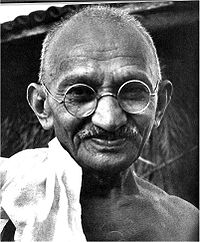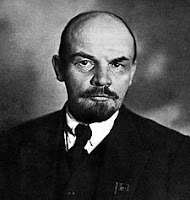Chairman Mao himself believed that the Great Proletarian Cultural Revolution in China was necessary because he felt that the government had become too bureaucratic. Essentially, Mao was fixated on mobilizing the masses. Mao and Lenin were very similar rulers, even though they were not huge fans of each other. Mao stated that "power grows from the barrel of a gun," whereas Lenin agrees that no progress can occur without violence. During the Cultural Revolution, Mao wanted all symbols of old China to disappear; Lenin was also very opposed to imperial Russia and wanted to make a change. The two leaders came to power in very similar ways. Both men laid low until the government was weak enough to be overthrown, after the government got overthrown the two men were waiting to be named leader of the new government.
Lenin was a pretty bad man, however his successor, Stalin, was even worse. Both Mao and Stalin saw everyone as a threat. Any person suspected of having counter-beliefs to one of the two men were either mysteriously murdered or exiled. Stalin liquefied the Kulaks, and Mao killed off party officials and intellectuals. Mao and Stalin were both power hungry. Both Mao and Stalin used manipulation to get power. Mao sent people to labor camps if they did not listen to him, whereas Stalin was very manipulative in his general rule. Neither men were very religious, however they portrayed themselves as gods. Stalin believed Mao to be an ignoramus, however they did many of the same things. Stalin merely believed Mao to be an idiot because he believed in the peasants, whereas Stalin followed a traditional Marxist belief that the proletariat had to overthrow the bourgeoisie.

Mohandas Gandhi invented the method of "satyagraha." In short, satyagraha is a form of nonviolent protest. Techniques of satyagraha include: civil disobedience, boycotting and hartal (or labor strikes). Many people believe that the American Revolution did not have to happen when it happened. Some people even believe that there did not have to be a war at all. The colonies, in the 1770's, did not have one figurehead to guide them through their rough times, and that is why the revolutionary war exploded so abruptly. Technically, the American citizens were not being overly corrupted by their mother country, Great Britain. In reality, the colonies wanted to be separate from England and wanted to be free due to the rapid spread of Enlightenment ideals. This desire for freedom from the original colonies was inevitable, however the war could have been avoided. If Gandhi lived in colonial America, during the 1770's, and spread his techniques of nonviolent protesting, the war could have been postponed or eliminated completely. The outcomes of all revolutions are greatly determined by the quality of the leaders. If Gandhi was able to unite all of the people in the colonies under one common cause—to gain freedom from Great Britain—the British parliament would have had no choice to give them what they were asking for. Not to mention, if they all did so nonviolently, the British would have been happy to comply with their requests. However, there may have been some difficulties in the colonies with Gandhi’s satyagraha method. Gandhi was able to make his citizens of India look past their religious beliefs and not consider themselves Hindus or Muslims, but Indians. The colonists were, for the most part, united religiously; however, in the colonies, religion was not a monumental thing. The colonists cared about their religions, but they did not discriminate against other religions. Therefore, unlike in India, there were no religious disputes in colonial America. There were other internal disputes, though. Instead of the colonists being segregated by religion, they were separated based on whether or not they considered themselves British. If Gandhi was the leader of colonial America, and succeeded in uniting the colonists against the British, parliament would have seen, through nonviolence, that it was time to let the colonies go.



